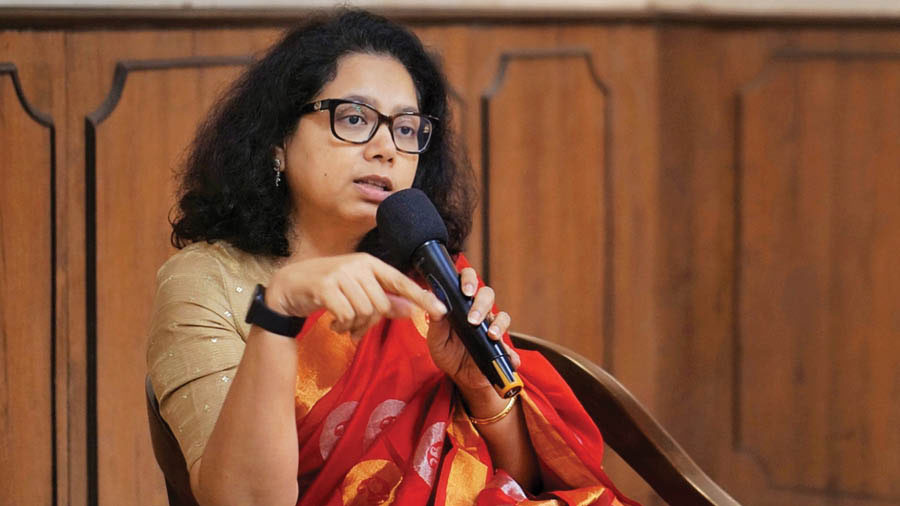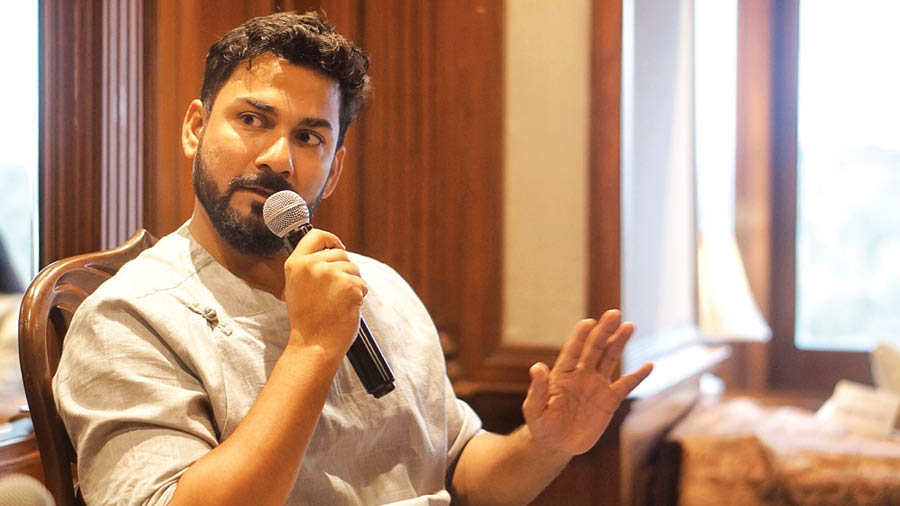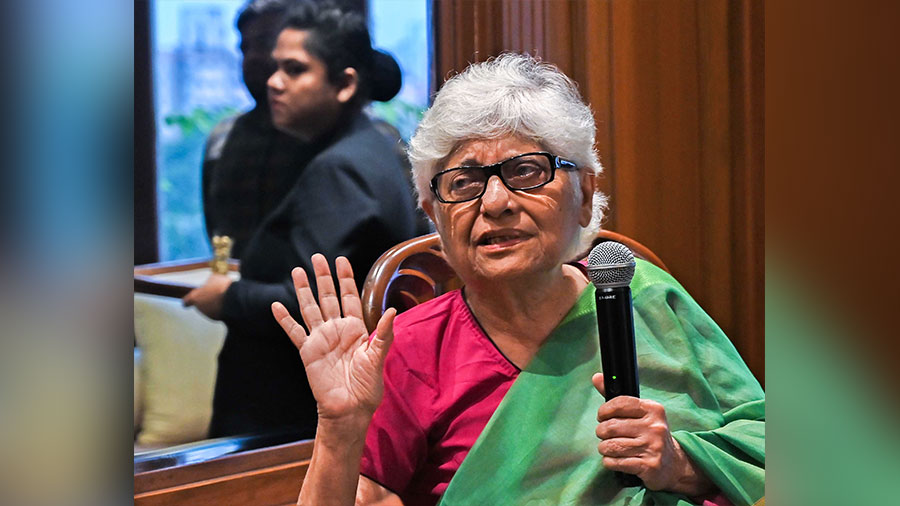Anu Singh Choudhary has dabbled in various kinds of writing. She has been a journalist, a screenwriter, a translator, a producer and an author. She is the co-founder of Dopamine Media & Entertainment and has been the screenwriter for several series such as Aarya, Grahan and Scoop. Her collection of short stories, Neela Scarf, and memoir, Mamma Ki Diary, continue to enthral readers years after their publication. Despite her success, she feels that she has more avenues to explore. Discussing her work, life and challenges, she was in conversation with Nidhi Garg, Ehsaas Woman of Bhubaneswar, at the latest session of Kalam, organised by Prabha Khaitan Foundation and at The Bengal Club, in association with Shree Cement Limited. Vasundhara Mishra, poet, journalist, and a member of the faculty at The Bhawanipur Education Society College, introduced Choudhary and Garg and delivered the welcome address.
‘I feel like writers are schizophrenics’
Explaining her creative process, Choudhary said that writers always have to straddle their immediate reality along with the world of imagination. Existing in a state of liminality, the best asset for a writer is to be agile and receptive to ideas. For Choudhary, especially, liminality helps with her creativity. In fact, a lot of the stories in Neela Scarf were conceived in the wee hours of the night, after she had put her infant to bed.
“I feel like writers are schizophrenics because they are constantly in two worlds. The imaginary world becomes so important because that’s the writer’s bread and butter. But when a writer doesn’t belong to one particular world, then he or she has the flexibility to be a part of different worlds from which they can draw inspiration for their stories. I am the most creative in a state of limbo, such as in airports or waiting lounges, where you’re nobody but the characters you have created,” she said.
The challenges of adaptation
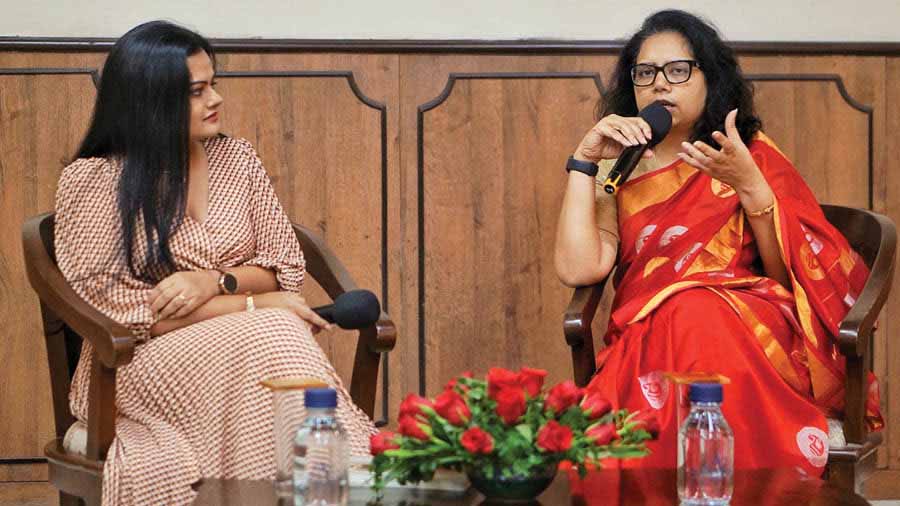
Nidhi Garg in conversation with Choudhary
Speaking about the challenges that she faced when she had to adapt the Dutch TV series Penoza to create Aarya, Choudhary noted that the biggest difficulty had been to maintain fidelity to the original text. The adaptation not only has to remain truthful to the original story but also has to be executed in tune with the zeitgeist of the period and society that it wishes to show.
“Writing in itself is a work of adaptation. You see things around you and then you adapt them into words. When I started working as a screenwriter, I was looking for work that required to be adapted. My first work as a screenwriter was adapting a novel called Chaurasi by Satya Vyas into a series with 400 scenes. The first challenge was to remain truthful to the soul of the work that I was adapting. Interweaving the new world that you’re creating while being truthful to the soul of the work that you’re adapting from is the biggest challenge, whether it’s adaptation from one language to another, from one medium to another or from one show to another,” elaborated Choudhary.
Women have to constantly negotiate in their lives
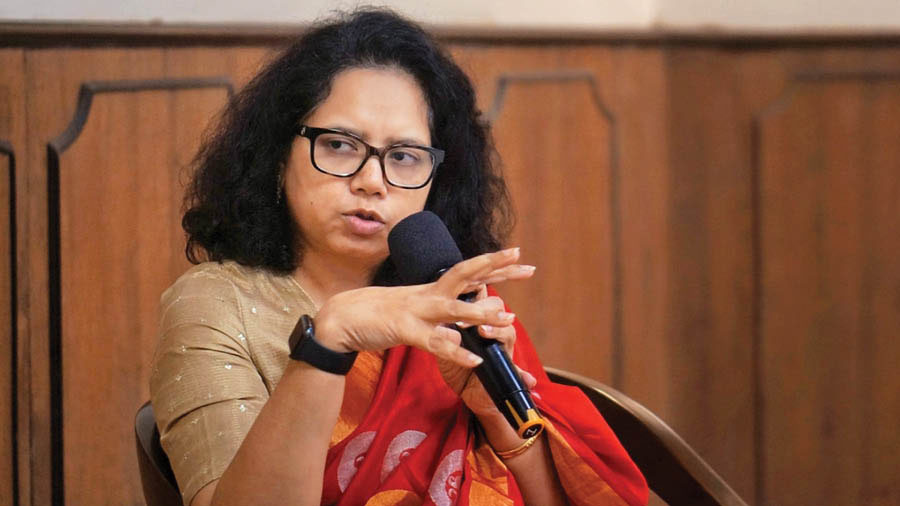
'Women have to choose their fights and priorities,' argued Choudhary
Several of Choudhary’s works feature women who are constantly striving to find the balance between their personal and professional lives. Often they find themselves in tough spots trying to fulfil their roles as mothers, wives and ambitious professionals. Speaking about this dilemma facing most educated, urban women, Choudhary observed that women’s lives are centred around negotiations: “Women have to constantly negotiate in their lives. Not just in their professional lives but also in their personal lives. At work, their colleagues are the stakeholders and in their homes, their families are the stakeholders. They have to choose their fights and priorities. Then they have to negotiate with everyone to stick to those.”
But Choudhary also believes that women’s empowerment does not happen in a vacuum. If women have been able to progress in life, it is, to some extent, because of the men who have created spaces where women have felt safe expressing their ideas and pursuing their ambitions.
“My biggest allies have been the men around me. The earliest supporters of my craft had been my brother and father. The first person who asked me to publish my work was a man. All the male directors that I’ve worked with fleshed out female characters and honestly portrayed women’s sensibilities. Patriarchy has not only managed to suppress women but also men. Women have benefitted either from the support of men or from the challenges that had been thrown at them because they’ve had to prove themselves. The masculine and feminine energy work in contrast to each other like yin and yang. In doing so, they throw each other in greater relief,” she concluded.
The session came to a close with the felicitation of the author and a Q&A session with the audience.
Guests speak
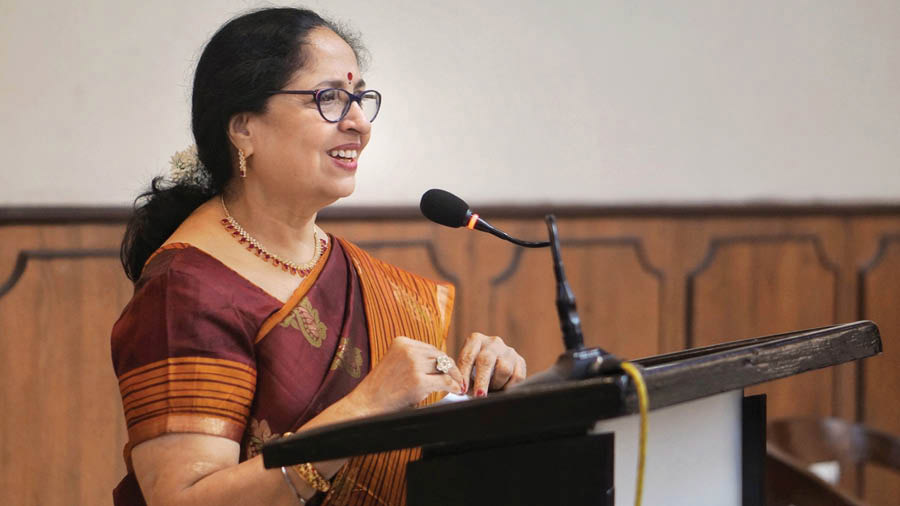
Vasundhara Mishra
“The session was enriching. Anu spoke about the incidents that occur in everyday life and that’s appealing to our youth. The language she used was also lucid and, therefore, appealing. From this session, I could understand where creativity stems from and how the writer is nobody’s but belongs to everybody.”
— Vasundhara Mishra, poet, journalist and professor
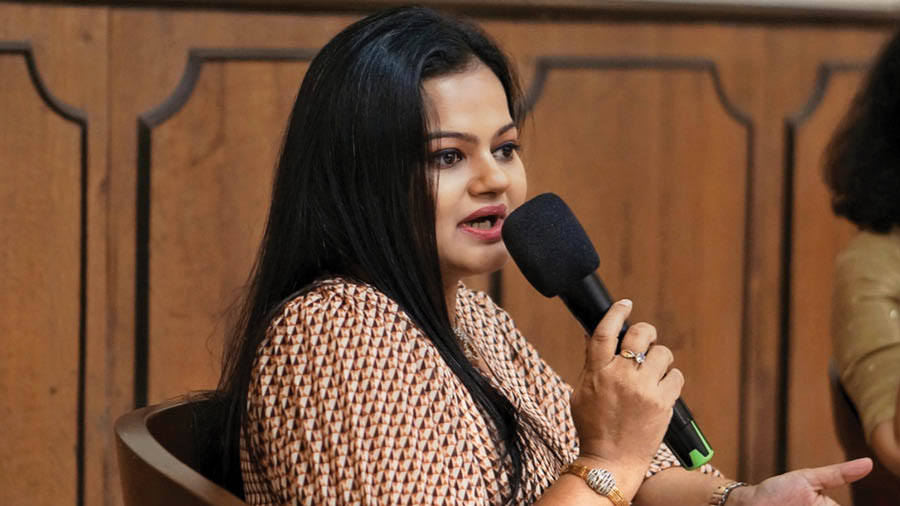
Nidhi Garg
“One thing that I felt about the author was that she’s a very good learner who knows how to take rejections in her stride. Being in Kolkata is always a pleasure, I love the food and culture here.”
— Nidhi Garg, Ehsaas Woman of Bhubaneswar
